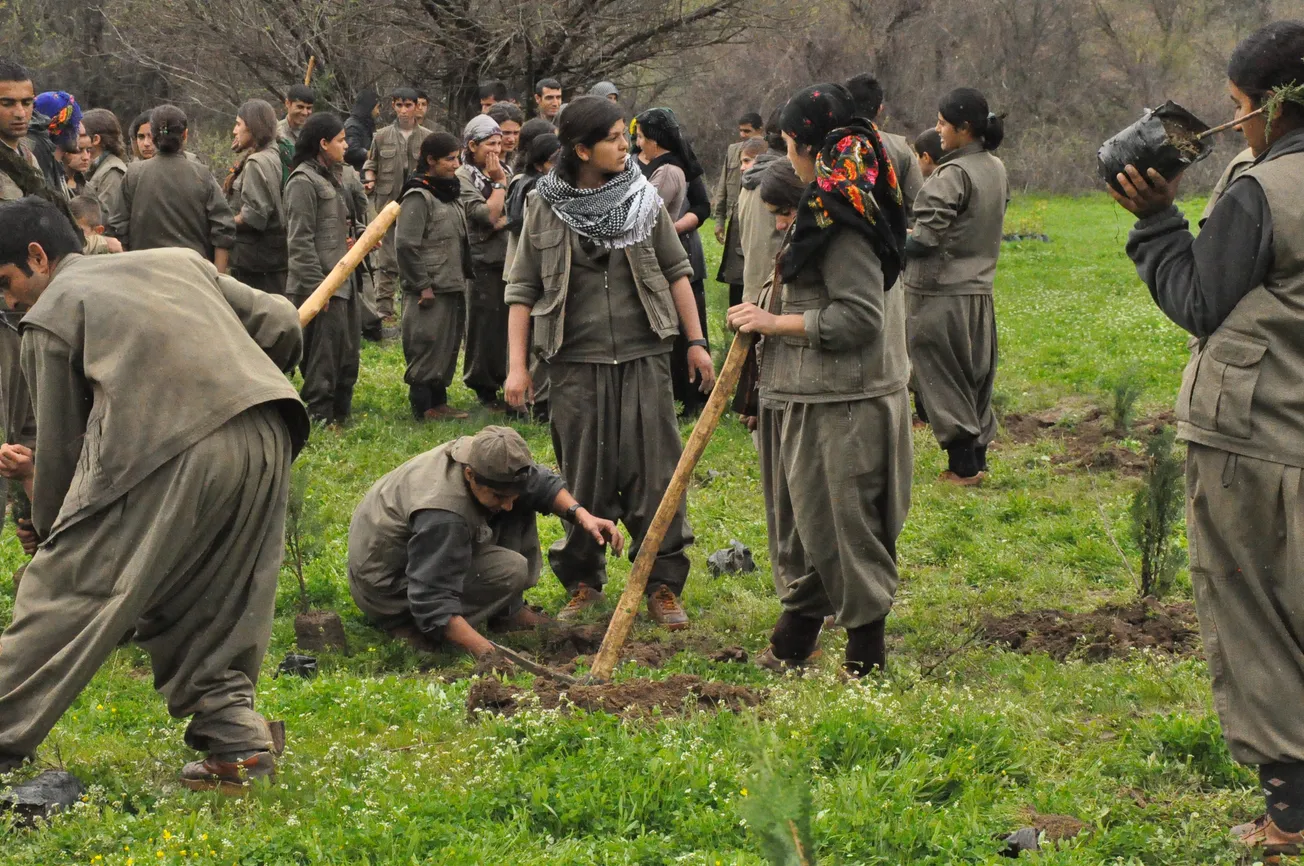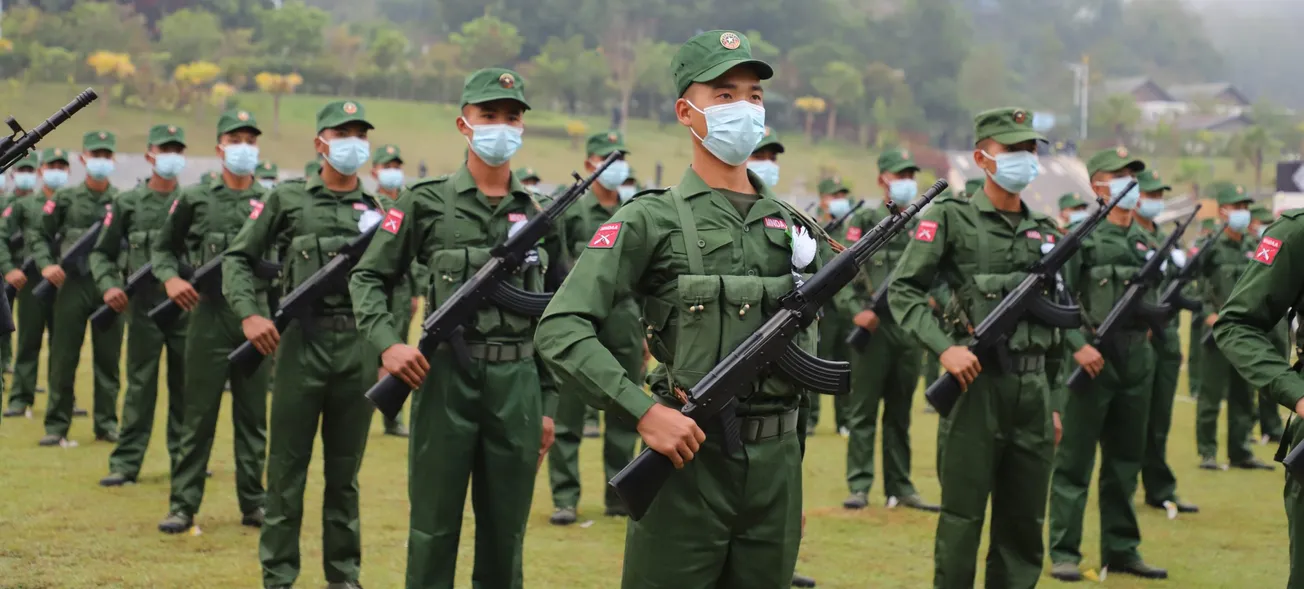Overview
The Islamic State Somalia Province (ISS), also known as Abnaa ul-Calipha, is an affiliate of the Islamic State (IS) that primarily operates in northeastern Somalia, particularly in the Puntland region. Formed in 2015, ISS has evolved into a significant player in the complex landscape of Somali insurgent groups, despite its relatively small size compared to other militant organizations in the country. While ISS has struggled to expand territorially within Somalia, it has gained prominence as a key node in the Islamic State's global network, particularly in terms of financial operations and international recruitment.
As of early 2025, ISS is estimated to have between 600 and 700 fighters, a significant increase from previous years. The group's importance extends beyond its immediate area of operations, as it hosts the Al-Karrar office, which serves as a financial hub for IS operations across Africa and beyond. ISS's growing international connections and its role in the broader IS network have made it a subject of increasing concern for counterterrorism efforts in the region and globally.
History
- Formation and Early Years (2015-2016): ISS emerged in October 2015 when Abdulqadir Mumin, a former al-Shabaab commander, pledged allegiance to IS leader Abu Bakr al-Baghdadi. Initially comprising only about 20-30 fighters, the group established itself in the Golis Mountains of Puntland.
- First Major Operation and Recognition (2016-2017): In October 2016, ISS captured the port town of Qandala, marking its first significant territorial gain. This operation brought international attention to the group. In December 2017, IS central leadership officially recognized ISS as a province.
- Survival and Adaptation (2018-2020): Despite pressure from al-Shabaab and Puntland security forces, ISS managed to survive and adapt. The group focused on building its financial networks and establishing itself as a key player in IS's global structure.
- Expansion and International Focus (2021-2025): From 2021 onwards, ISS experienced significant growth, both in terms of manpower and international connections. The group's role in facilitating financial transfers for other IS affiliates became more prominent. By 2024, ISS had reportedly doubled in size, bolstered by an influx of foreign fighters from various countries.
Key Characteristics
- Ideology: ISS adheres to the Salafi-jihadist ideology of the Islamic State, seeking to establish a caliphate governed by a strict interpretation of Islamic law.
- Transnational Focus: While operating primarily in Somalia, ISS has developed significant international connections, playing a crucial role in IS's global network.
- Financial Hub: Through the Al-Karrar office, ISS is a key financial node for IS operations across Africa and beyond.
- Resilience: Despite its relatively small size, ISS has demonstrated remarkable resilience in the face of military pressure and competition from other militant groups.
- Foreign Fighter Magnet: In recent years, ISS has attracted an increasing number of foreign fighters, diversifying its ranks and potentially enhancing its capabilities.
- Adaptive Tactics: The group has shown the ability to adapt its tactics, ranging from territorial control attempts to more covert financial and logistical operations.
Key People/Actors
- Abdul Qadir Mumin: The founder and current leader of ISS. Mumin, a former al-Shabaab commander, has been instrumental in shaping the group's strategy and international connections.
Key Capabilities and Tactics
- Financial Operations: ISS has developed sophisticated financial networks, leveraging Somalia's mobile money and hawala systems to move funds globally.
- Recruitment: The group has demonstrated an ability to attract both local and foreign fighters, expanding its ranks and diversifying its skill set.
- Guerrilla Warfare: ISS excels in hit-and-run tactics and ambushes, particularly in Puntland's mountainous terrain.
- Suicide Attacks: The group has shown capability in conducting complex suicide attacks, as evidenced by the December 31, 2024, operation against Puntland security forces.
- IED Manufacturing: ISS has developed proficiency in producing and deploying improvised explosive devices.
- Media and Propaganda: The group utilizes sophisticated media strategies to promote its cause and attract recruits.
- Cross-border Operations: ISS has demonstrated the ability to conduct operations across the Somalia-Kenya border and maintain connections with IS affiliates in other countries.
- Extortion and Illicit Taxation: The group generates significant funds through extorting local businesses and illegal taxation, particularly in coastal areas.
Outlook
As of early 2025, the outlook for ISS and its impact on regional and global security remains complex:
- Growing International Threat: ISS's increasing connections to the global IS network and its role as a financial hub raise concerns about its potential to support or inspire attacks beyond Somalia's borders.
- Resilience and Adaptation: Despite ongoing military pressure, ISS has shown remarkable resilience and ability to adapt its strategies, suggesting it will remain a persistent security challenge.
- Foreign Fighter Influx: The continued influx of foreign fighters may enhance ISS's capabilities and further internationalize its outlook.
- Financial Network Expansion: ISS's sophisticated financial operations through the Al-Karrar office will likely continue supporting IS affiliates globally, posing challenges for counterterrorism financing efforts.
- Potential for External Operations: While ISS has primarily focused on local and regional activities, its growing international connections raise concerns about potential involvement in external attack planning.
- Competition with Al-Shabaab: The ongoing rivalry between ISS and al-Shabaab will likely continue shaping Somalia's security landscape.
- Counterterrorism Challenges: The group's adaptability and its base in remote areas of Puntland will continue to challenge Somali and international counterterrorism efforts.
- Regional Stability Impact: ISS's activities and their potential to inspire or support other militant groups could have broader implications for stability in the Horn of Africa region.
In conclusion, while ISS remains a relatively small player within Somalia compared to groups like al-Shabaab, its growing international connections and role within the global IS network make it a significant concern for regional and international security. The group's resilience, adaptive capabilities, and financial operations suggest that it will continue to be a persistent threat, requiring sustained and coordinated efforts to counter its influence and activities.










